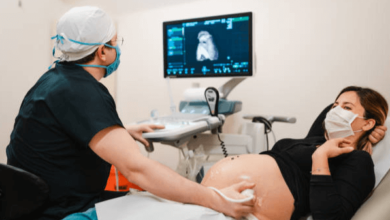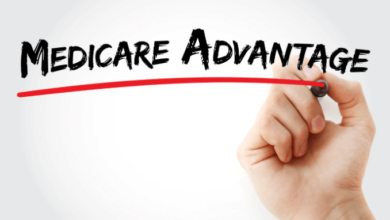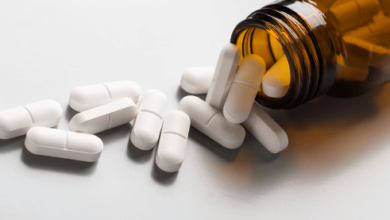Comprehensive Alcohol Rehabilitation Programs: Therapies and Interventions

Alcohol rehabilitation programs from Better Life Recovery and Wellness LLC play a crucial role in helping individuals overcome addiction and regain control of their lives. These programs offer a combination of therapies and interventions designed to address the physical, emotional, and psychological aspects of addiction. By providing a structured and supportive environment, rehabilitation programs enable individuals to achieve and maintain sobriety. We will explore the various therapies and interventions that are commonly used in comprehensive alcohol rehabilitation programs, highlighting their significance in the recovery process.
Therapies in Alcohol Rehabilitation
Therapy is a fundamental component of alcohol rehabilitation programs, offering individuals the tools and support needed to understand and overcome their addiction. One of the most widely used therapeutic approaches is Cognitive Behavioral Therapy (CBT). CBT focuses on identifying and changing negative thought patterns and behaviors associated with alcohol use. Through one-on-one sessions with a therapist, individuals learn to recognize triggers, develop coping strategies, and build healthier habits. CBT is highly effective because it empowers individuals to take control of their thoughts and actions, reducing the likelihood of relapse.
Another important therapy in alcohol rehabilitation is Dialectical Behavior Therapy (DBT). DBT combines cognitive-behavioral techniques with mindfulness practices to help individuals manage their emotions and develop healthier relationships. This therapy is particularly beneficial for those who struggle with co-occurring mental health disorders, such as depression or anxiety, alongside their addiction. DBT helps individuals improve their emotional regulation, interpersonal skills, and distress tolerance, all essential for sobriety.
Group therapy is another crucial aspect of alcohol rehabilitation programs. Group therapy sessions provide a supportive environment where individuals can share their experiences, gain insights from others, and build a sense of community. A licensed therapist typically facilitates these sessions and may focus on various topics, such as coping strategies, relapse prevention, and communication skills. Group therapy fosters a sense of belonging and reduces feelings of isolation, which are common among those struggling with addiction. It also allows individuals to learn from the experiences of others and receive feedback and encouragement from their peers.
Family therapy is also an important component of comprehensive alcohol rehabilitation programs. Addiction affects not only the individual but also their loved ones. Family therapy sessions involve the individual and their family members working together to address the impact of addiction on the family dynamic. These sessions help improve communication, rebuild trust, and develop healthy boundaries. Family therapy strengthens the support system for the individual in recovery and promotes a more stable and supportive home environment.
Read also: Sim s life it could get messy fitness weight loss dating single parent life reviews
Interventions in Alcohol Rehabilitation
In addition to therapy, comprehensive alcohol rehabilitation programs include various interventions designed to support individuals throughout their recovery journey. One of the first and most critical interventions is medical detoxification, commonly referred to as detox. Detox involves the supervised withdrawal from alcohol, allowing the body to rid itself of toxins. This process can be physically challenging and, in some cases, life-threatening, so detox must be conducted under medical supervision. Medications may be administered to manage withdrawal symptoms and reduce cravings, making the process more manageable and safer for the individual.
Medication-assisted treatment (MAT) is another intervention used in alcohol rehabilitation programs. MAT involves the use of FDA-approved medications, in combination with therapy, to treat alcohol use disorder. Medications such as naltrexone, acamprosate, and disulfiram can help reduce cravings, prevent relapse, and improve overall treatment outcomes. Naltrexone works by blocking the euphoric effects of alcohol, reducing the desire to drink. Acamprosate helps stabilize brain chemistry and alleviate withdrawal symptoms, while disulfiram creates an adverse reaction to alcohol, deterring individuals from drinking. MAT is particularly effective in a comprehensive treatment plan that includes therapy and support.
Another intervention that plays a significant role in alcohol rehabilitation is the development of a personalized treatment plan. Each individual’s journey to recovery is unique, and a personalized treatment plan ensures their specific needs and challenges are addressed. This plan is typically developed in collaboration with a multidisciplinary team of healthcare professionals, including doctors, therapists, and counselors. It outlines the therapeutic approaches, interventions, and support services utilized throughout the treatment process. A personalized treatment plan increases the likelihood of successful recovery by providing a tailored approach that addresses the individual’s unique circumstances.
Aftercare planning is also a crucial intervention in alcohol rehabilitation programs. Aftercare involves the development of a plan to support individuals once they complete the initial phase of treatment. This plan may include ongoing therapy, support group meetings, and strategies for managing triggers and preventing relapse. Aftercare ensures individuals have the resources and support to maintain their sobriety and continue their recovery. It also provides a safety net for individuals as they transition back into their daily lives, helping them navigate the challenges and temptations that may arise.
Peer support is another valuable intervention in alcohol rehabilitation programs. Peer support involves connecting individuals with others who have experienced similar struggles with addiction and are in recovery. This support can be provided through support groups, such as Alcoholics Anonymous (AA), or through peer mentoring programs. Peer support offers individuals a sense of camaraderie and understanding and practical advice and encouragement from those who have successfully navigated the recovery process. It also provides a sense of accountability and motivation to stay on track with sobriety goals.
Conclusion
Comprehensive alcohol rehabilitation programs are designed to provide individuals with the therapies and interventions necessary for successful recovery. By incorporating a range of therapeutic approaches, such as Cognitive Behavioral Therapy, Dialectical Behavior Therapy, group therapy, and family therapy, these programs address the physical, emotional, and psychological aspects of addiction. Interventions such as medical detoxification, Medication-Assisted Treatment, personalized treatment plans, aftercare planning, and peer support further enhance the effectiveness of these programs. Through a combination of therapy and interventions, alcohol rehabilitation programs offer individuals the support and tools they need to achieve and maintain sobriety, ultimately leading to a healthier and more fulfilling life.





